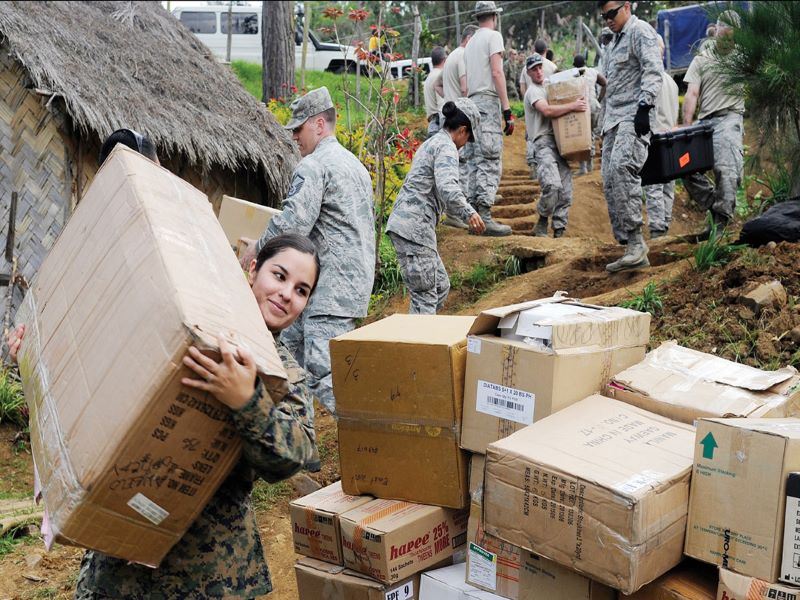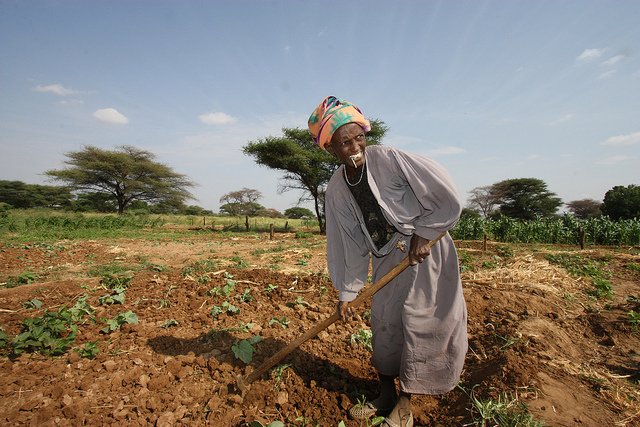Introduction
Development aid is financial aid given by a developed country to a developing country’s government to support economic growth in the receiving country. Approximately 80-85% of development aid comes from foreign government sources, with the remainder coming from private organizations. While aid funding has increased dramatically in the 2010s relative to the early 1990s, some, like Dambisa Moyo, have questioned the impact development aid has had in developing countries. According to Dambisa Moyo, no developing countries have been able to reduce poverty, or achieve sustainable levels of economic growth by relying on aid.
Whether providing development aid is effective may be contributing to a decline in donor countries’ willingness to provide it. According to the Organisation for Economic Co-Operation and Development (the “OECD”), net aid funding has been in decline since 2017. While contributions from the 30 members of the OECD’s Development Assistance Committee totalled USD 149.3 billion in 2018, this represented a 2.7% decrease from 2017. In Canada, Conservative leader Andrew Scheer recently pledged that a Conservative-led federal government would cut foreign aid spending by 25%. Scheer stated that a Conservative government would withhold international assistance from “middle- and upper-income countries as well as hostile regimes.”
The Facts
Questions over the effectiveness of development aid programming are not new. In fact, a taskforce reviewing the US Agency for International Development’s programming determined that “despite decades of foreign assistance, most of Latin America, Asia, and the Middle East are economically worse off today than [when they began to receive development aid].” Similarly, the Meltzer Commission, established by the US Congress, found a 55 to 60 percent failure rate of World Bank projects in developing countries.
How should we explain failures in aid programming? According to Moyo, one of the main issues with development aid programming is that it is too “open-ended,” meaning recipient governments have too much flexibility in deciding how to invest aid. While not intrinsically problematic, affording recipient governments too much flexibility can be problematic when they govern according to poor economic policies.
For instance, governments in developing countries have been found to have used aid to bolster their control of their countries’ economies and reduce market competition. In Ian Vasquez’s study of the United States’ foreign aid programming, Vasquez found that recipient governments have used developmental aid to further market restricting policies such as trade protectionism, inflationary monetary policy, price and wage controls, and restrictions on foreign and domestic investment.
Vasquez also found that even where economic policies may be sound, corruption has also limited the effectiveness of aid programming. For example, aid intended to serve as a source of investment for a certain sector may not reach its target because of fraud or abusive practices by local officials.
There is also evidence to suggest a positive relationship between aid and corruption. In Stephen Knack’s report on “Aid Dependence and the Quality of Governance” for the World Bank, Knack found that in many cases, increased aid over extended periods of time can lead to dependence and increase corrupt practices. Knack’s findings demonstrate that extremely lax aid policies by donor governments can be conducive to corruption. For example,, it may reduce the likelihood that a recipient state will enact policies to reduce corrupt practices within its own ranks or mobilize savings.
Improving the Efficacy of Aid Programming
Thus, donor governments seeking to increase the effectiveness of their aid programming should limit a developing country’s flexibility in investing the aid it receives. By using aid as a negotiating tool, donor governments should make aid dependent on adopting market-oriented reforms that promote market competition and engagement in global trade. Increasing the involvement of developing countries in international trade is particularly important considering exports and foreign direct investment are the two most important external revenue sources for developing countries. For example, developing countries’ share of merchandise exports has risen from USD 599 billion in 1980 to USD 5 trillion in 2009. In 2008, foreign direct investment flows to developing countries reached almost USD 520 billion.
At the same time, one of the ways corruption can be reduced is through increased monitoring. Since developing countries have an interest in receiving aid, donors should negotiate with recipients to establish accountability requirements. Moreover, donor governments should work more closely with grassroots organizations and local communities that are meant to be benefiting from the provided aid. According to the World Bank’s 2004 World Report, “putting poor people at the center of service provision: enabling them to monitor and discipline service providers, amplifying their voice in policymaking, and strengthening the incentives for service providers to serve the poor.” In essence, by monitoring how and where development aid is being invested, corruption can be reduced and meeting economic development targets become more easily attainable.
Conclusion
While flows of aid from developed countries to developing ones have increased, the appetite for continued aid programming appears to be reducing, in part as a result of questions as to aid’s effectiveness at achieving sustained economic development. However, reducing aid programming is not the solution; rather, pursuing policies and strategies to increase the effectiveness of aid programming should be. To increase the effectiveness of development aid, donor governments should monitor donated resources, as well as use aid to negotiate with recipient governments as a means of securing free-market, trade-oriented economic policies in developing countries to achieve economic development.
Photo: “Pacific Angel participants help improve Papua New Guinean School” by Marcus Morris via U.S. Air Force.
Disclaimer: Any views or opinions expressed in articles are solely those of the authors and do not necessarily represent the views of the NATO Association of Canada.




